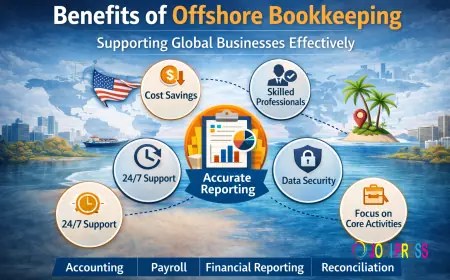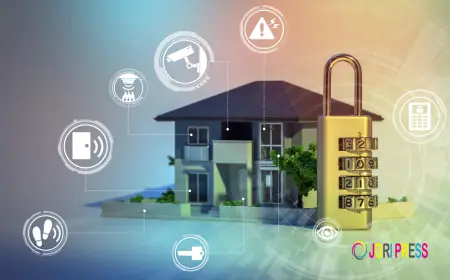India Plastic Recycling Market Growth Potential: Opportunities in 2030 and Beyond
India Plastic Recycling Market Growth Potential: Opportunities in 2030 and Beyond
According to the TechSci Research report, India Plastic Recycling Market – By Region, Competition, Forecast and Opportunities, 2020-2030F, the market reached a valuation of USD 2,188.65 million in 2024 and is expected to grow at a Compound Annual Growth Rate (CAGR) of 10.76% through 2030. The Indian plastic recycling industry has undergone significant transformation, driven by technological innovations, regulatory frameworks, and increasing environmental awareness. India’s plastic recycling sector has evolved from basic collection and reprocessing to a sophisticated ecosystem involving advanced sorting technologies, chemical recycling methods, and smart waste management practices. The convergence of these technological, policy, and societal factors is shaping a sustainable future for plastic waste management in the country.
???????? ??? ?????? ??????:-
https://www.techsciresearch.com/sample-report.aspx?cid=9346
Technological Advancements Driving Growth
Smart Waste Collection Systems
The adoption of smart waste collection systems has revolutionized the collection and management of plastic waste. Internet of Things (IoT) enabled bins equipped with sensors track fill levels in real-time, facilitating optimized collection routes for waste management authorities. This approach reduces operational costs, fuel consumption, and the risk of overflowing bins that lead to littering. Integration with GPS technology further enables precise tracking of collection vehicles, increasing transparency and accountability in municipal and private waste management operations.
Smart collection systems improve efficiency in the plastic recycling supply chain by ensuring that collected plastics reach recycling facilities in a timely and organized manner. By optimizing logistics, municipalities and recycling companies are able to reduce environmental impact while maintaining operational efficiency. Such systems have become a foundation for modern recycling practices across urban and semi-urban regions in India.
Advanced Sorting Technologies
Sorting is a crucial stage in plastic recycling, where materials are classified according to type and quality. In India, automated sorting technologies powered by artificial intelligence (AI) and optical sensors have significantly enhanced the accuracy and throughput of sorting operations. These systems can rapidly identify and separate different polymer types, ensuring recycled materials meet quality standards suitable for industrial use.
Automation reduces labor dependency and minimizes contamination in recycled plastics, enabling their application in high-value sectors such as packaging, construction, and automotive components. By enhancing the quality of recycled output, advanced sorting technologies have become a key driver in the expansion of the plastic recycling market, supporting both industrial adoption and regulatory compliance.
Chemical Recycling Processes
India has made significant strides in chemical recycling, addressing the challenges of processing complex and multilayer plastics. Processes such as depolymerization and pyrolysis allow plastics to be converted into monomers or fuels, expanding the types of plastics that can be effectively recycled. These advancements provide solutions for materials that are difficult to recycle mechanically, such as multilayer packaging or mixed plastics, reducing accumulation in landfills.
Chemical recycling contributes to a circular economy by recovering valuable resources from plastic waste. Industrial-scale integration of these processes enhances economic and environmental benefits, supports sustainable manufacturing practices, and reduces dependence on virgin plastic feedstock. The growing adoption of chemical recycling in India underlines the market’s commitment to long-term sustainability.
Extended Producer Responsibility (EPR) Initiatives
Technology also plays a critical role in implementing Extended Producer Responsibility (EPR) programs, which hold manufacturers accountable for the lifecycle of their products, including disposal and recycling. Digital platforms and blockchain-enabled tracking systems monitor plastic waste generated by specific brands, ensuring compliance with EPR regulations. This encourages responsible production and recycling practices, fostering a culture of environmental stewardship across industries.
These initiatives enhance transparency in waste management and drive accountability among producers. By leveraging technology for monitoring, India is creating a structured framework for compliance while supporting the growth of a sustainable plastic recycling ecosystem.
Blockchain for Traceability and Certification
Blockchain technology is increasingly used to ensure the traceability and authenticity of recycled plastics. By recording each step of the recycling process on a secure ledger, companies can certify recycled content and communicate sustainability credentials to consumers. This builds trust in recycled products, encourages adoption by manufacturers, and promotes transparency throughout the supply chain.
Blockchain integration also supports compliance with industry standards and regulatory requirements. This technology not only reassures end users but also incentivizes companies to incorporate recycled materials into production, strengthening the market for sustainable plastics.
Public Awareness and Digital Engagement
Digital tools, including mobile applications and online platforms, have become vital for educating the public about proper recycling practices. These platforms provide information on waste segregation, collection center locations, and recycling methods, empowering individuals to participate actively in plastic waste management. Public engagement through these channels fosters a culture of environmental responsibility and promotes participation in municipal and private recycling programs.
Through these technological advancements, India’s plastic recycling sector is evolving into a more efficient, transparent, and sustainable system, supporting long-term environmental goals and reducing the ecological footprint of plastic waste.
Segmental Analysis: Ingredient Insights
The India Plastic Recycling Market can be analyzed based on type, source, method, end user, and region. Understanding these segments is essential for evaluating growth drivers, challenges, and opportunities within the industry.
By Type
The market comprises multiple polymer types, including Polyethylene Terephthalate (PET), Polyethylene (PE), Polypropylene (PP), Polyvinyl Chloride (PVC), Polystyrene (PS), and others. PET and PE are the most widely recycled due to their prevalence in packaging and consumer products. The demand for recycled PET is rising, particularly in the beverage and food industries, driven by increasing sustainability awareness and government initiatives promoting eco-friendly packaging.
Recycling these polymer types supports energy conservation and reduces greenhouse gas emissions. Manufacturers benefit from integrating recycled plastics, which lowers production costs and reduces dependence on virgin raw materials, fostering a circular economy approach.
By Source
Plastic bottles remain the primary source of recyclable materials in India. The bottle segment is expected to experience significant growth, driven by rising consumer awareness, adoption of circular economy practices, and increasing industrial demand for recycled content in new bottles and packaging. Films, fibers, and foams also contribute to the recycling stream, though they require specialized processing technologies.
The economic and environmental benefits of using recycled materials, such as energy savings and reduced greenhouse gas emissions, support the growing adoption of bottle recycling. Collection initiatives, coupled with government and industry collaboration, further strengthen the segment’s growth trajectory.
By Method
Recycling methods include mechanical, chemical, thermal, and landfill-based approaches. Mechanical recycling involves the physical reprocessing of plastics into new products, whereas chemical recycling converts plastics into monomers or fuels. Thermal methods, including pyrolysis, are used for energy recovery from non-recyclable plastics. Each approach has unique advantages and contributes to improving the overall efficiency of plastic recycling operations.
By End User
Recycled plastics are utilized across multiple industries, including packaging, building & construction, textiles, automotive, and electrical & electronics. The packaging industry remains the largest consumer, particularly for recycled PET bottles and containers. Construction applications include piping, insulation, and composite materials, while the automotive and electronics sectors use recycled plastics for various components, enhancing sustainability in manufacturing.
By Region
The Western region of India is a dominant player in the plastic recycling market, owing to its industrial concentration, urbanization, and infrastructure. Cities such as Mumbai, Pune, and Ahmedabad generate substantial plastic waste, creating a steady supply for recycling facilities. The region’s regulatory support, combined with technological adoption, reinforces its leadership in sustainable waste management.
Other regions, including Northern, Southern, and Eastern India, are gradually expanding their recycling capacities. Urbanization, industrialization, and environmental awareness in these areas are key drivers of growth, with government incentives further supporting recycling initiatives.
Major Companies Operating in India Plastic Recycling Market
The competitive landscape of the India Plastic Recycling Market includes established domestic and international players such as Ganesha Ecosphere Ltd., JB Ecotex Limited, Pashupati Group, Dalmia Polypro Industries Pvt. Ltd., Alliance Fibres Ltd, Lucro Plastecycle Private Limited, Al Mehtab Industries Pvt. Ltd, Shree Sadguru Plastic Industries, Parkash Plastic, Mittal Polygrains LLP, Gravita India Limited, Hindustan Plastic, B R Plastic Industries Private Limited, Halifax Greentech LLP, Sri Chakra Polyplast India Pvt Ltd., Reliance Industries Limited, and Indo Rama Synthetics (India) Limited. These companies are investing in technological advancements, expanding production capacities, and adopting sustainable practices to strengthen their position in the growing market.
Future Outlook
The India Plastic Recycling Market is expected to experience strong growth in the coming years, driven by technological innovation, regulatory frameworks, and rising environmental consciousness. Key trends include the expansion of chemical recycling facilities, greater adoption of smart waste collection and digital tracking systems, increased consumer engagement through digital platforms, collaborative initiatives promoting circular economy practices, and blockchain integration for traceability and EPR compliance.
These developments are expected to improve recycling efficiency, expand the use of recycled plastics across industries, and reduce the environmental impact of plastic waste, supporting the nation’s sustainability objectives.
10 Key Profit Points of Research Report and Competitive Analysis
The report provides comprehensive insights into market size estimation, growth forecasts, technological advancements, segmental analysis, competitive landscape, regulatory initiatives, recycling methods, regional dynamics, investment opportunities, and strategic recommendations. It aims to support informed decision-making and identify emerging trends, drivers, challenges, and opportunities in the Indian plastic recycling market.
???????? ??? ?????? ??????:-
https://www.techsciresearch.com/sample-report.aspx?cid=9346
FAQ Section
Q1. What is the current market size of India Plastic Recycling Market?
A1. According to TechSci Research, the India Plastic Recycling Market was valued at USD 2,188.65 million in 2024.
Q2. What is the projected CAGR for the market through 2030?
A2. The market is expected to grow at a CAGR of 10.76% during the forecast period.
Q3. Which region dominates plastic recycling in India?
A3. The Western region leads the market due to its industrial base, urbanization, infrastructure, and proactive environmental policies.
Q4. What are the major sources of recyclable plastics?
A4. Bottles, films, fibers, and foams are the main sources, with bottles contributing the largest and fastest-growing segment.
Q5. How is technology impacting the plastic recycling market?
A5. Technologies like smart collection systems, AI-based sorting, chemical recycling, and blockchain enhance efficiency, sustainability, and transparency.
Q6. Who are the key players in the India Plastic Recycling Market?
A6. Leading companies include Ganesha Ecosphere Ltd., Gravita India Limited, JB Ecotex Limited, Pashupati Group, and Reliance Industries Limited.
Q7. What are the primary end users of recycled plastics?
A7. Major end users include packaging, building & construction, textiles, automotive, and electrical & electronics sectors.
Q8. What are the advantages of using recycled plastics in manufacturing?
A8. Benefits include energy conservation, reduced greenhouse gas emissions, lower reliance on virgin plastics, and cost savings.
Conclusion
The India Plastic Recycling Market is undergoing a transformative phase, driven by technological advancements, regulatory support, and growing environmental awareness. With innovations like smart waste collection, AI-powered sorting, chemical recycling, and blockchain traceability, India is advancing toward a sustainable, circular, and efficient plastic economy. Increasing industrial adoption of recycled plastics, coupled with consumer participation, positions the market for continued growth and long-term environmental impact.
Contact TechSci Research:
420 Lexington Avenue, Suite 300, New York, United States-10170
Tel: +1-332-258-6602
Email: [email protected]
Website: www.techsciresearch.com
What's Your Reaction?
 Like
0
Like
0
 Dislike
0
Dislike
0
 Love
0
Love
0
 Funny
0
Funny
0
 Angry
0
Angry
0
 Sad
0
Sad
0
 Wow
0
Wow
0














































